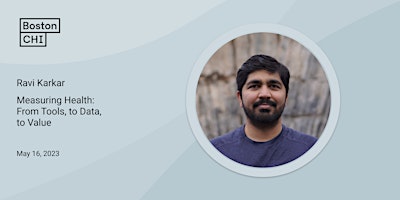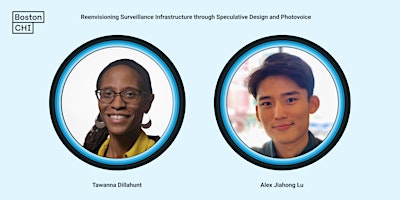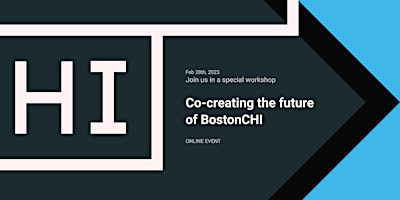The next BostonCHI meeting is Ravi Karkar: Measuring Health – From Tools, to Data, to Value on Tue, May 16 at 6:45 PM.
Abstract
The ongoing boom in personal health technologies offers new potential to support people in collecting and interpreting data about their own health and well-being. However, there is a mismatch between what technology currently delivers (e.g., step counts, sleep scores) versus what people expect from it (i.e., personal health insights and recommendations).
Current technologies fall short of their potential due to complex and interrelated challenges (e.g., in meeting personal needs, in data quality, in their integration into clinical practice). A holistic approach is therefore necessary, focusing on end-to-end design that understands the individual, their environments, and their contexts.
My research focuses on human-centered approaches to collecting, interacting with, and using novel health data toward improving human well-being through personalized insights and recommendations.
I explore this in two major thrusts of research: (1) I build specialized tools to enable people living with chronic conditions to better leverage their personal health data in understanding and managing their health; and (2) Through the process of creating and studying such tools, I systematize frameworks and design recommendations to assist future developers in designing personal health tools.
About Ravi Karkar
My research focuses on designing, developing, and evaluating tools that can enable people to gather data and interpret personal aspects of their medical condition in the context of their day-to-day lives. Specifically, I focus on opportunities for individualized interventions that can be more effective and appropriate than one-size-fits-all population-based interventions.
I collaborate closely with clinical researchers to build targeted tools to support patients in better understanding and managing chronic conditions. I have also contributed a domain agnostic framework and approaches toward better design of personal health technologies. An overarching theme across the tools that I build is a focus on translating the research — taking the research from lab-studies into the hands of the individuals who need it.


